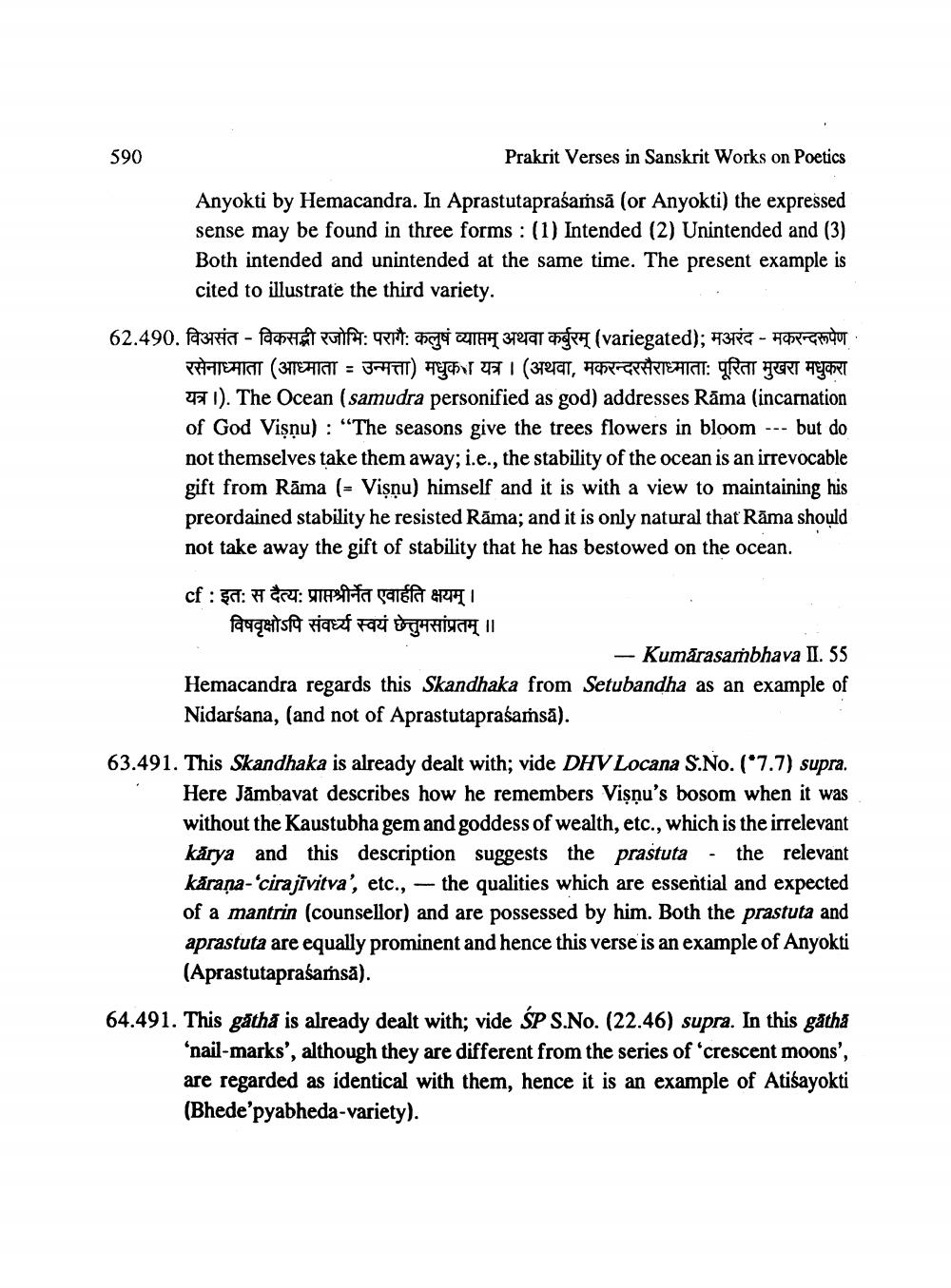________________
590
Prakrit Verses in Sanskrit Works on Poetics
Anyokti by Hemacandra. In Aprastutaprašaṁsā (or Anyokti) the expressed sense may be found in three forms: (1) Intended (2) Unintended and (3) Both intended and unintended at the same time. The present example is cited to illustrate the third variety.
62.490. Tria - Paris : TT:sag 21H437277 ano (variegated); F3TG - Hapagador
रसेनाध्माता (आध्माता = उन्मत्ता) मधुका यत्र । (अथवा, मकरन्दरसैराध्माता: पूरिता मुखरा मधुकरा
1). The Ocean (samudra personified as god) addresses Rāma (incarnation of God Vişnu): "The seasons give the trees flowers in bloom --- but do not themselves take them away; i.e., the stability of the ocean is an irrevocable gift from Rāma (= Visnu) himself and it is with a view to maintaining his preordained stability he resisted Rāma; and it is only natural that Rāma should not take away the gift of stability that he has bestowed on the ocean.
cf : a: ht: Msifa garela Hai विषवृक्षोऽपि संवर्ध्य स्वयं छेत्तुमसांप्रतम् ॥
- Kumārasambhava II. 55 Hemacandra regards this Skandhaka from Setubandha as an example of Nidarśana, (and not of Aprastutaprašaṁsā).
63.491. This Skandhaka is already dealt with; vide DHV Locana S.No. (*7.7) supra.
Here Jambavat describes how he remembers Vişnu's bosom when it was without the Kaustubha gem and goddess of wealth, etc., which is the irrelevant karya and this description suggests the prastuta . the relevant karana-'cirajīvitva', etc., - the qualities which are essential and expected of a mantrin (counsellor) and are possessed by him. Both the prastuta and aprastuta are equally prominent and hence this verse is an example of Anyokti (Aprastutaprašaṁsā).
64.491. This gātha is already dealt with; vide ŚP S.No. (22.46) supra. In this gatha
'nail-marks', although they are different from the series of 'crescent moons', are regarded as identical with them, hence it is an example of Atiśayokti (Bhede'pyabheda-variety).




